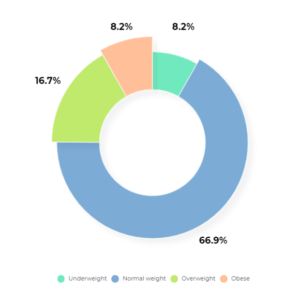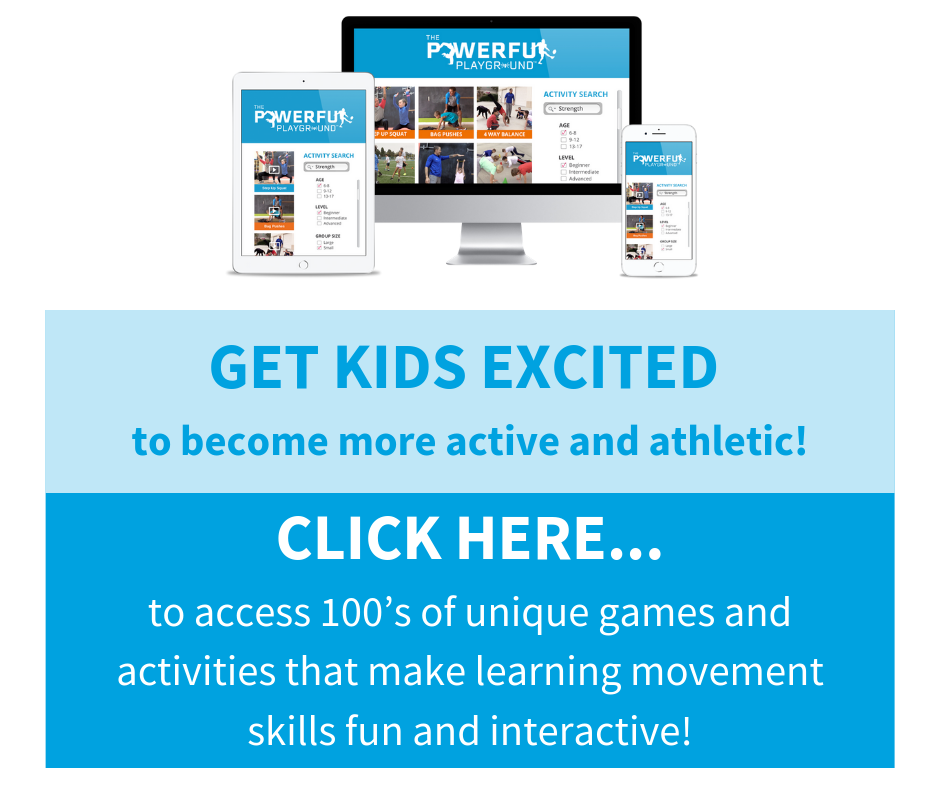So how about that last 18 months?
If we ever needed an excuse to stay home, play Xbox, Netflix & Chill, and support local businesses by ordering copious amounts of takeaway, it has been the last 18 months.
Sounds like a dream to some people, right?
Well unfortunately, all of these behaviours long term aren’t ideal for our physical health or our mental health. This isn’t just limited to us Personal Trainers reading a blog like this, but also for our clients, our clients’ kids and even our own. So, what I want to write about today is the current state of kids’ fitness from across the globe.
I’m sure you’re well aware of the alarming rate which childhood obesity has climbed in the US (about 14.4 million children and adolescents [1]), but this is not a trend isolated to the US alone. It is predicted by 2030 globally, there will be 254 million children classified as obese (the most recent data 2020 there were 158 million [2]) . The scariest part of this data, that is obese… not including children who are classified as overweight and obese, where the data balloons out to 340 million children and adolescents between 5-19 years old [3].

A little closer to my side of the globe (Australia), the stats continue to be pretty frightening. Geographically speaking all through the Pacific Islands (Nauru, Samoa, American Samoa, Tonga, Niue, Cook Islands & French Polynesia) have at least 20% of their children classified as obese. Add to this through Asia childhood obesity is still continuing to accelerate [4].
Here in Australia though, how does it stack up? We’re that fit, healthy, beach loving, sun loving, sport loving country, right? Well, not so much anymore. The below diagram shows us, that a little over 24% of our children 2-17 are either overweight or obese and even more alarmingly this blows out to over 35% of children in rural or remote areas [5]!

So, what can we do and how can we use all of this data as fitness professionals? To me a few key elements stand out here in Australia (and I assume across the globe);
- Children and adolescents are not consuming sufficient vegetables on a daily basis (only 6% in Australia do [7])
- Children are consuming WAY too many calories from foods which include added sugars (70%+ exceed recommended limits [8])
- By the age of 9 only 16% of children are achieving the minimum standard of physical activity [9]
- This data is significantly worse in indigenous populations and people living in rural or remote communities.
 For me the first two points are best addressed by two things; education (to the families and children) and better incentives to buy better quality food. Both of these are extremely challenging, but one option that has been trialled in several countries (Mexico, UK, France, Norway and South Africa) and proven to reduce consumption of sugar laden drinks is a ‘sugar tax’ [10]. I’m no economist, but potentially any tax of products with excessive sugars, may be returned as subsidies towards healthier alternatives.
For me the first two points are best addressed by two things; education (to the families and children) and better incentives to buy better quality food. Both of these are extremely challenging, but one option that has been trialled in several countries (Mexico, UK, France, Norway and South Africa) and proven to reduce consumption of sugar laden drinks is a ‘sugar tax’ [10]. I’m no economist, but potentially any tax of products with excessive sugars, may be returned as subsidies towards healthier alternatives.
For the remaining two points about increasing exercise, again I believe a great start point is education and that more should be done from within the school environment: as a former elementary school teacher the problem is also twofold;
- Physical activity is often pushed to the bottom of the curriculum, as it is seen as ‘less than’ or not as vital as subjects such is English or Math.
- A lack of training for the teachers. Again, most professional development money gets pushed towards improving outcomes related to English or Math and unfortunately, most of the teachers don’t have the skill or knowledge to run effective, fun exercise programs. The same can be said of the art, music and science.
Then circling all the way back to the pandemic, maybe one thing we have learned, is how to offer effective exercise programs for those who live in remote or rural communities. It has never been easier to provide these people with opportunities to partake in meaningful and fun exercise programs via modern technology.
For me if you can take anything out of this blog, is that no matter where you are, there are a lot of people from all over the world who need guidance around healthy food choices and around living a healthy lifestyle and as trainers, we have the opportunity to help make this happen.
Travis Mattern
Co Founder and Director at Fitness Education Online
Fitness Education Online are one of the leading organisations in the Australia who provide online CEC Courses for Personal Trainers. You can see more of what they do on the links below.
Website (Australia): https://www.fitnesseducationonline.com.au
Website (USA): https://www.fitnesseducationonline.com
Instagram: https://www.instagram.com/fitnesseducationonline
Facebook Group: https://www.faceook.com/groups/fitnesseducationonline
Citations:
[1] Centers for Disease Control and Prevention. (2021, April 5). Childhood Obesity Facts. Centers for Disease Control and Prevention. https://www.cdc.gov/obesity/data/childhood.html.
[2] Global obesity trends in children. Obesity Evidence Hub. (2021). https://www.obesityevidencehub.org.au/collections/trends/children-global-context.
[3] World Health Organization. (2020). Obesity and overweight. World Health Organization. https://www.who.int/news-room/fact-sheets/detail/obesity-and-overweight.
[4] Global obesity trends in children. Obesity Evidence Hub. (2021). https://www.obesityevidencehub.org.au/collections/trends/children-global-context.
[5,6,7,8,9] Obesity trends in Australian children. Obesity Evidence Hub. (2018). https://www.obesityevidencehub.org.au/collections/trends/australian-children.
[10] Sánchez-Romero, L. M., Canto-Osorio, F., González-Morales, R., Colchero, M. A., Ng, S.-W., Ramírez-Palacios, P., Salmerón, J., & Barrientos-Gutiérrez, T. (2020, May 6). Association between tax on sugar sweetened beverages and soft drink consumption in adults in Mexico: open cohort longitudinal analysis of Health Workers Cohort Study. The BMJ. https://www.bmj.com/content/369/bmj.m1311.






Connect with SPIDERfit!